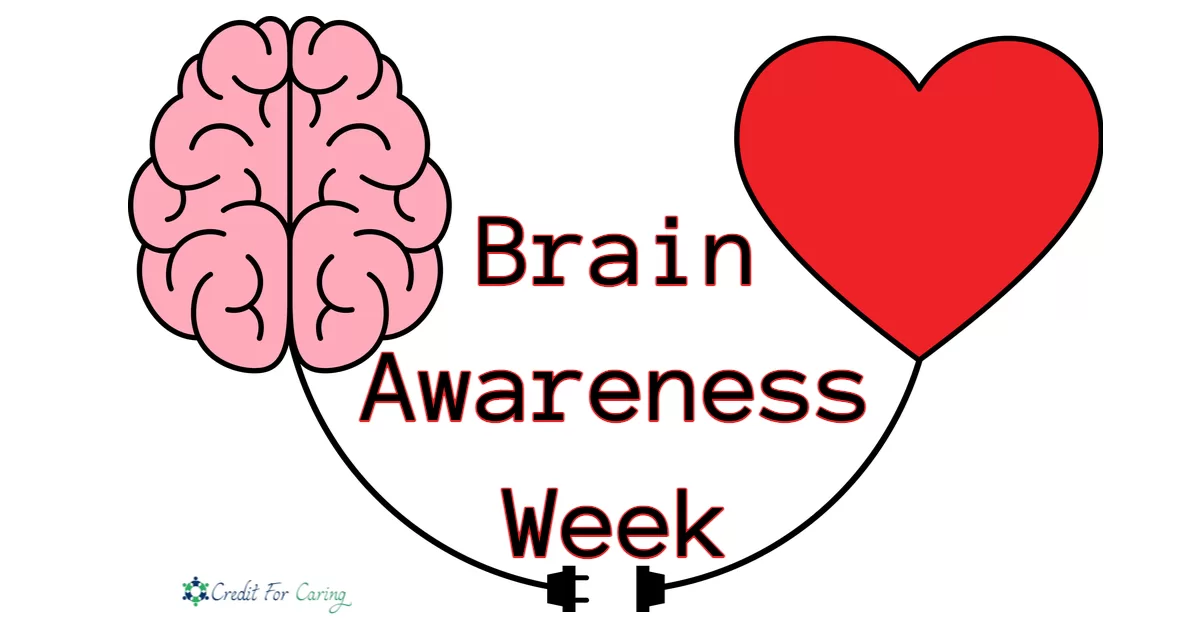
Brain Awareness Week
Did you know that information in our brains travels at 268 miles per hour? That means each of us has a super-computer sitting on top of our shoulders. Researchers confirm compassion increases our brain’s ability to regulate emotion according to Neurosurgeon Joseph D. Stern at Caroline Neurosurgery and Spine and author of Grief Connects Us.
I must admit, I take my brain for granted. I breathe, see, hear, smell, think, feel, and all the other amazing processes that have just happened. Turns out that keeping my brain healthy starts with keeping my heart healthy, according to the American Heart Association (AHA). These seven health factors impact your brain.
- Blood pressure
- cholesterol
- blood sugar
- level of exercise
- diet
- weight
- smoking status
Our lifestyle affects this list of seven health indicators in profound and inter-related ways. Regular exercise and healthy foods can help with weight control. Not smoking reduces blood pressure and bad cholesterol and other cardiovascular benefits. Your annual medical check-up is a great place to start (hint, hint).

Social Isolation and Loneliness
The virus pandemic may be waning, but the mental health pandemic continues to spread around the world. The rates of mental health issues are greatest in adolescents and young adults, but the rates of social isolation and loneliness are reported higher for people over 65 years old. The distinction between social isolation and loneliness is significant. “Loneliness is the feeling of being alone, regardless of the amount of social contact. Social isolation is a lack of social connections. Social isolation can lead to loneliness in some people, while others can feel lonely without being socially isolated”, according to the Centers for Disease Control and Prevention.
The National Academies Science Engineering and Medicine published Social Isolation and Loneliness in Older Adults: Opportunities for the Health Care System with these notable findings.
- Social isolation significantly increases a person’s risk of premature death from all causes, a risk that may rival those of smoking, obesity, and physical inactivity.
- Social isolation was associated with about a 50% percent increased risk of dementia.
- Poor social relationships (characterized by social isolation or loneliness) are associated with a 29% increased risk of heart disease and a 32% increased risk of stroke.
- Loneliness was associated with higher rates of depression, anxiety, and suicide.
- Loneliness among heart failure patients was associated with a nearly 4 times increased risk of death, 68% increased risk of hospitalization, and 57% increased risk of emergency department visits.
Practice Brain Love Everyday
Here are some suggestions for incremental lifestyle changes that benefit your heart and brain.
- Take a hike. Get outdoors for fresh air, even 15 minutes a day.
- Read a book and discuss it with family and friends. I recommend joining a book club at your local library.
- Eliminate all distractions from your sleeping area to improve the quality and length of restorative sleep.
- Practice gratitude.
- Call or visit family and friends.
- Meditate daily.
- Start a hobby. Gardening?
- Limit screen time.
- Throw out the junk food.
- Follow your passion.
Yours in Health,
Monica




